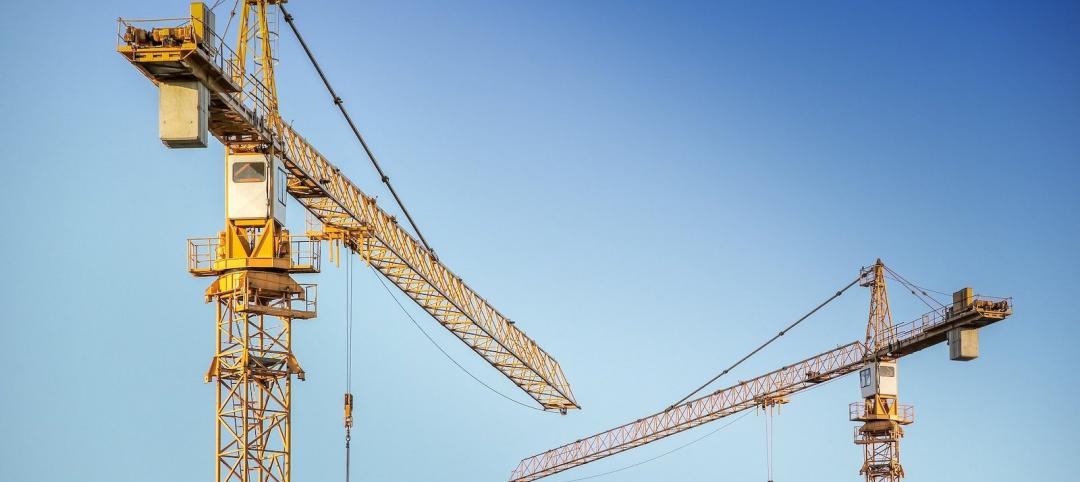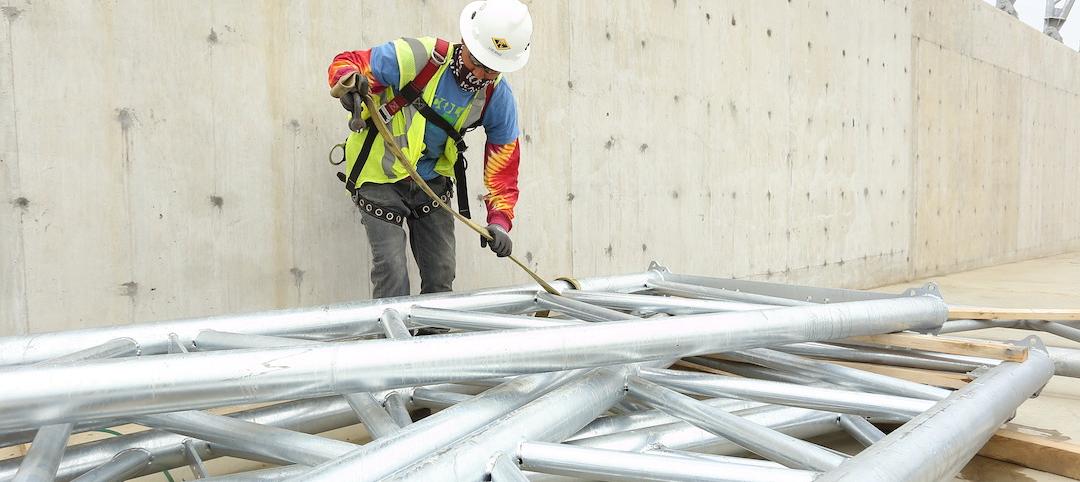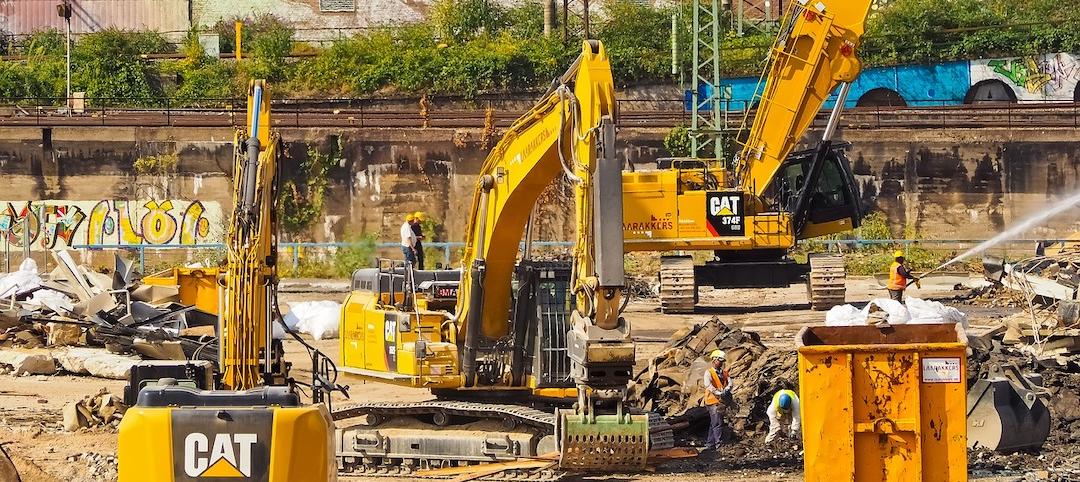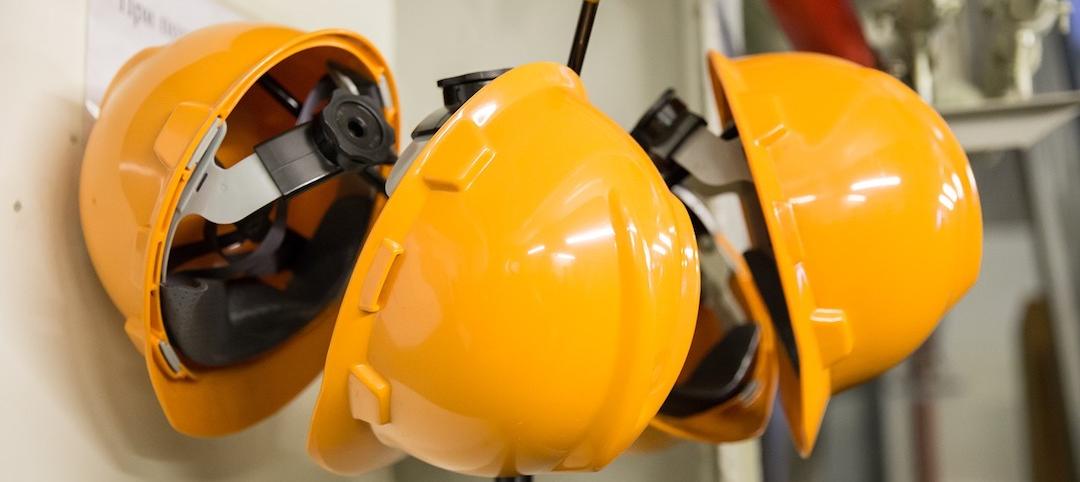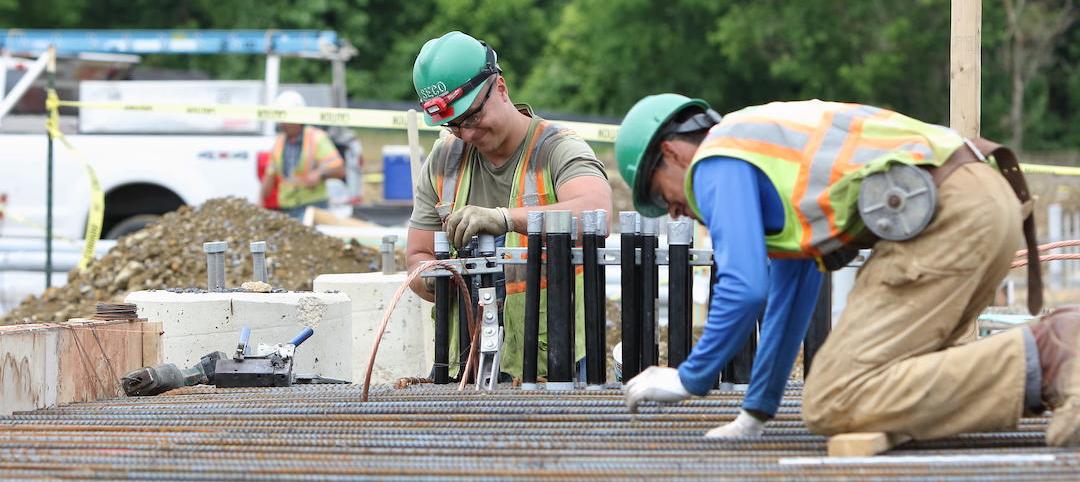The Q1 2018 USG Corporation + U.S. Chamber of Commerce Commercial Construction Index (Index), released today, reveals nearly two-thirds of contractors are highly confident that demand for commercial construction will increase over the next year, however, continued concerns around labor shortages have put even greater pressure on the industry. To increase jobsite efficiency and improve labor productivity, increasingly more builders are turning to alternative construction solutions, like prefabrication and modularization.
The Q1 Index indicates contractors turn to innovations such as prefabricated and modular building materials to create more efficient jobsites (89%), increase labor productivity (85%), drive cost savings (58%), and provide a competitive advantage in the marketplace (51%). In fact, 50% of contractors report their companies already use prefabricated and modular components and the number was even higher among general contractors (72%). Nearly two-thirds (63%) of contractors report at least moderate demand for these building materials.
"Access to skilled labor is a continued concern, which has led contractors to increasingly seek solutions that help offset jobsite challenges,” said Jennifer Scanlon, President and Chief Executive Officer of USG Corporation. “There is significant opportunity to introduce innovations that confront jobsite efficiency and strengthen the industry – such as solutions that enable prefabricated and modular building components.”
Contractors in the Northeast (69%) reported the most frequent usage of prefabricated and modular components, compared to the South where only 24% indicate their companies are using these materials. Firms in the Northeast also expect to hire fewer workers—38% of contractors in the region expect to employ more staff in the next six months, compared with 57% in the South, 59% in the West, and 68% in the Midwest. Across all regions, concern over the cost of hiring skilled labor has remained consistent over the past year—nearly two-thirds (64%) of contractors expect these costs to increase in the next six months.
Despite labor concerns, contractor sentiment remained steady for the first quarter, as a result of strong revenue expectations and higher profit margins, with a composite score of 74.
“As we work to continually build our neighborhoods, towns, regions, and roads, as well as the workforce that supports our growth, innovation becomes a key component in advancing our country into the 21st century,” said Thomas J. Donohue, President and CEO of the U.S. Chamber. “We must invest in a skilled, competitive, motivated workforce and embrace new innovations to ensure we are able to compete on a global scale.”
The Index looks at the results of three leading indicators to gauge confidence in the commercial construction industry – backlog levels, new business opportunities and revenue forecasts – generating a composite index on a scale of 0 to 100 that serves as an indicator of health for the contractor segment on a quarterly basis. The Q1 2018 composite score was 74, holding steady from Q4 2017.
The Q1 2018 results from the three key drivers were:
- Backlog: On average, contractors currently hold 8.9 months of backlog, relatively close to the average ideal amount of 12.2 months, continuing the stability of the market, although there is room for growth. Down two points from Q4 2017, this represents 73% of ideal backlog levels.
- New Business: Nearly all (98%) contractors report high or moderate confidence in the demand for commercial construction. Year-over-year, the number of contractors who have high confidence in demand over the next 12 months jumped 11 percentage points (from 51% in Q1 2017 to 62% in Q1 2018).
- Revenues: Over half (54%) of contractors expect to see revenue gains in the next year. This percentage jumped seven points from last quarter (47% in Q4 2017).
The research was developed with Dodge Data & Analytics (DD&A), the leading provider of insights and data for the construction industry, by surveying commercial and institutional contractors.
Related Stories
Industry Research | Mar 23, 2022
Architecture Billings Index (ABI) shows the demand for design service continues to grow
Demand for design services in February grew slightly since January, according to a new report today from The American Institute of Architects (AIA).
Codes and Standards | Mar 1, 2022
Engineering Business Sentiment study finds optimism despite growing economic concerns
The ACEC Research Institute found widespread optimism among engineering firm executives in its second quarterly Engineering Business Sentiment study.
Codes and Standards | Feb 24, 2022
Most owners adapting digital workflows on projects
Owners are more deeply engaged with digital workflows than other project team members, according to a new report released by Trimble and Dodge Data & Analytics.
Market Data | Feb 23, 2022
2022 Architecture Billings Index indicates growth
The Architectural Billings Index measures the general sentiment of U.S. architecture firms about the health of the construction market by measuring 1) design billings and 2) design contracts. Any score above 50 means that, among the architecture firms surveyed, more firms than not reported seeing increases in design work vs. the previous month.
Market Data | Feb 15, 2022
Materials prices soar 20% between January 2021 and January 2022
Contractors' bid prices accelerate but continue to lag cost increases.
Market Data | Feb 4, 2022
Construction employment dips in January despite record rise in wages, falling unemployment
The quest for workers intensifies among industries.
Market Data | Feb 2, 2022
Majority of metro areas added construction jobs in 2021
Soaring job openings indicate that labor shortages are only getting worse.
Market Data | Feb 2, 2022
Construction spending increased in December for the month and the year
Nonresidential and public construction lagged residential sector.
Market Data | Jan 31, 2022
Canada's hotel construction pipeline ends 2021 with 262 projects and 35,325 rooms
At the close of 2021, projects under construction stand at 62 projects/8,100 rooms.
Market Data | Jan 27, 2022
Record high counts for franchise companies in the early planning stage at the end of Q4'21
Through year-end 2021, Marriott, Hilton, and IHG branded hotels represented 585 new hotel openings with 73,415 rooms.






